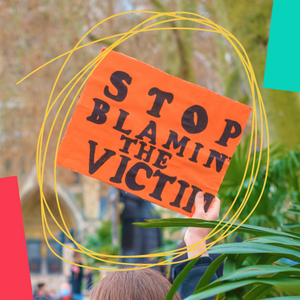 19 Mar
19 Mar
The Information Commissioner has today (31st May 2022) spoken out against the routine and excessive collection of victims’ personal information in cases of sexual violence.
In a report, the Information Commissioner John Edwards called for criminal justice agencies to immediately stop collecting excessive amounts of personal information from victims of rape and serious sexual assault.
The End Violence Against Women Coalition and women’s rights organisations have long raised the alarm about the deeply intrusive and problematic violation of victims’ rights to privacy, with police response to reports of sexual violence involving, as standard, the extraction of victims’ private and personal data from their mobile phones, social media messages, past medical records, school reports, counselling notes, and more.
Police practice unlawful
Today the Information Commissioner joins survivors and their advocates in voicing concerns about this alarming practice, stating that aspects of individual investigations involving victims’ data fall short of requirements under the Data Protection Act and UK General Data Protection Regulations (GDPR), and are therefore “unlawful”.
The Commissioner also made clear that it is likely the Information Commissioner’s Office (ICO) will take enforcement action if practices do not meet its standards in future.
We welcome the Information Commissioner’s statement as well as his stated commitment to ensuring victim support groups are informed of his recommendations and can flag ongoing practices that fail to comply.
Barrier to justice
Women’s rights organisations and support services have consistently demonstrated that as well as being an unnecessary, re-traumatising intrusion into survivors’ private lives, this practice is driving a loss of trust and confidence in the criminal justice system and constitutes a barrier to accessing justice.
These barriers and failings mean that a system meant to deliver justice is in fact causing harm to survivors, and resulting in many feeling unable to continue with their case. In recent years, charging and conviction rates have plummeted to the lowest on record. This systemic failing is exacerbated by the appalling way survivors are treated during the process, which further erodes their access to justice.
Acknowledging this, we’re pleased to see the Commissioner highlight that victims may be more inclined to continue with the criminal justice process if there is less pressure to provide unlimited access to phone or digital device data, and no unnecessary, disproportionate intrusion into their private lives.
Problematic practices around consent to access data
Survivors reporting incredibly traumatic experiences are currently being told to consent to hand over extraordinary amounts of information about their lives by signing a ‘Stafford statement’, which effectively gives police forces ‘blanket’ consent to access victim’s personal data – including information from school records, medical histories and social services records.
The Information Commissioner today has made clear his expectation that police immediately stop this unlawful practice.
Regarding the report John Edwards, the Information Commissioner, said:
“Victims are being treated as suspects, and people feel re-victimised by a system they expect to support them. Change is required to rebuild trust that will enable more victims to seek the justice to which they’re entitled.
Change is possible and it must happen. The law requires it and my office will push for it.”
Rebecca Hitchen, Head of Policy and Campaigns at the End Violence Against Women Coalition (EVAW), said:
“Victims’ past experiences – whether that is a history of engaging in therapeutic support, incidents at school or medical treatment they have received – are not relevant in establishing whether or not a perpetrator has assaulted them.
These practices in fact reflect and reinforce cultural attitudes that victims are in some way to blame for what happened to them. It is appalling that these myths, stereotypes and biases are not acknowledged and addressed within our justice agencies.
Instead, they go unchecked and inform the daily practice of those who hold power to gatekeep a victim’s right to justice.
As it stands this report is completely at odds with the CPS decision last week to lower the bar for disclosure and the sharing of counselling notes, further weakening any sense of privacy that victims have.
We call on police leaders, the CPS and the Attorney General’s Office to heed the Information Commissioner’s warning and urgently show how they are addressing this breach of survivors’ rights.”
Recommended ARTICLES
 19 Mar
19 Mar
 05 Mar
05 Mar
 27 Feb
27 Feb

